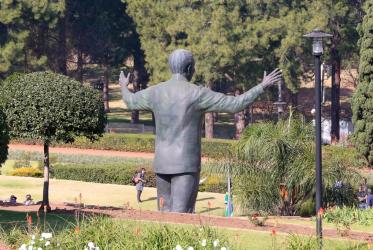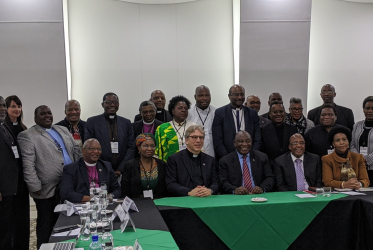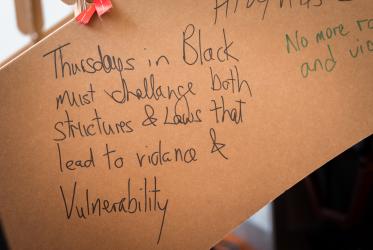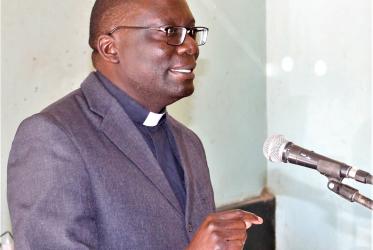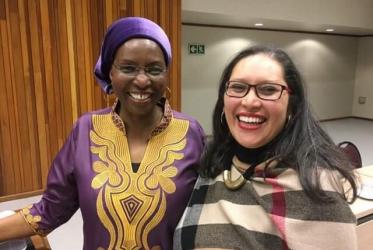Displaying 21 - 40 of 78
Young Africans are eager to grapple with challenges
09 January 2020
South Africans draw hope despite recurring challenges
16 December 2019
WCC delegation meets with South African President Ramaphosa
09 December 2019
Churches in southern Africa stand against violence, xenophobia
10 October 2019
Rev. Damon Mkandawire: “A man is a gender justice champion”
03 October 2019
When you strike the women, you strike a rock
18 September 2019
Council of Churches in Zambia: “Involve the people in the process”
09 September 2019
Thursdays in Black: sharing support, transforming lives
21 February 2019
“Love will find a way”
23 August 2018
#WCC70: Churches as “freedom agents”
12 February 2018
In Zambia, foreign investors complicate “economy of life”
06 September 2017

